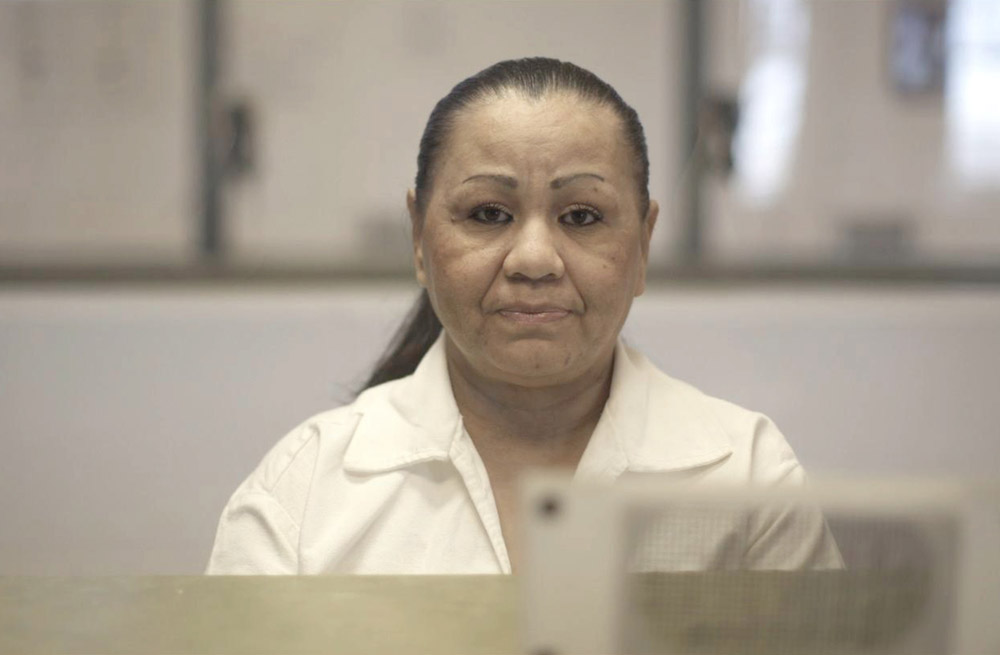There’s an eeriness throughout “The State of Texas vs. Melissa” that would make it seem as though Melissa Lucio had already been executed, despite the fact that she is the first person you meet in Sabrina van Tassel’s film chronicling her road to death row. Relatives speak about Lucio in the past tense and both in her current disposition, speaking through a telephone behind glass, and the places she once was that the filmmaker retraces, all completely absent of other people, she appears to have been left behind the world at large, with her only interaction with others being with her appellate lawyer Margaret Schmuckler since being convicted of murdering her prepubescent daughter Mariah 11 years earlier, if not for van Tassel’s visit.
Indeed, there may not be much hope for Lucio to avoid her sentence — “The State of Texas v. Melissa” is unusual among contemporary advocacy docs in resisting making a legal crusade to get her out as its primary narrative thrust, as much as it disputes the case that was presented against her. Instead, van Tassel creates a way for Lucio to leave a legacy regardless of whether she is successful with an appeal, pinpointing the flaws in the system that assured justice wouldn’t be served when so many turning points in her case were decided not by the facts of the case, but a presumption of guilt antithetical to the foundation of American law.
While Lucio may have all but disappeared behind bars, she had the right look for a quick conviction when she was taken in by Texas rangers in the border town of Harlingen as a poorly educated mother of 14. Although she holds distinction as a rare woman to be sentenced to capital punishment, the film reveals that the local D.A. in Cameron County was hunting for such a case during an election year and police had brought him something relatively open and shut with Lucio confessing on tape not to the crime of murdering her daughter after countless hours of questioning that ended at 3:15 in the morning, but to likely causing the head trauma that ended Mariah’s life. The early morning interrogation, presented generously throughout “The State of Texas vs. Melissa,” is sketchy enough in its particulars, but van Tassel builds a case that Lucio’s public defender had no interest in pursuing as just another file to get off his desk, interviewing Lucio’s kids who witnessed Mariah falling down some stairs the day before her death and her larger family, who describe the internal conflicts that could’ve led to the tragedy.
Like a trial, these witnesses aren’t presented as speaking to one another — and admirably van Tassel leaves the room to show how they all aren’t on the same page — but they come to form a picture that is far less damning of Lucio than how her confession was obtained, what crime she’d be tried for was determined and how the prosecution and defense in her case worked hand-in-hand out of convenience rather than in pursuit of the truth. It may be Lucio who is thought to be lost at the start of the film, but by the end, it’s the sense that there can be fair trials in a country where political considerations and prejudices based on race and class so readily make their way into verdicts, no matter how impartial juries may present themselves, and “The State of Texas vs. Melissa” proves there was criminal negligence, just not necessarily how you would think.
“The State of Texas Vs. Melissa” does not yet have U.S. distribution.




